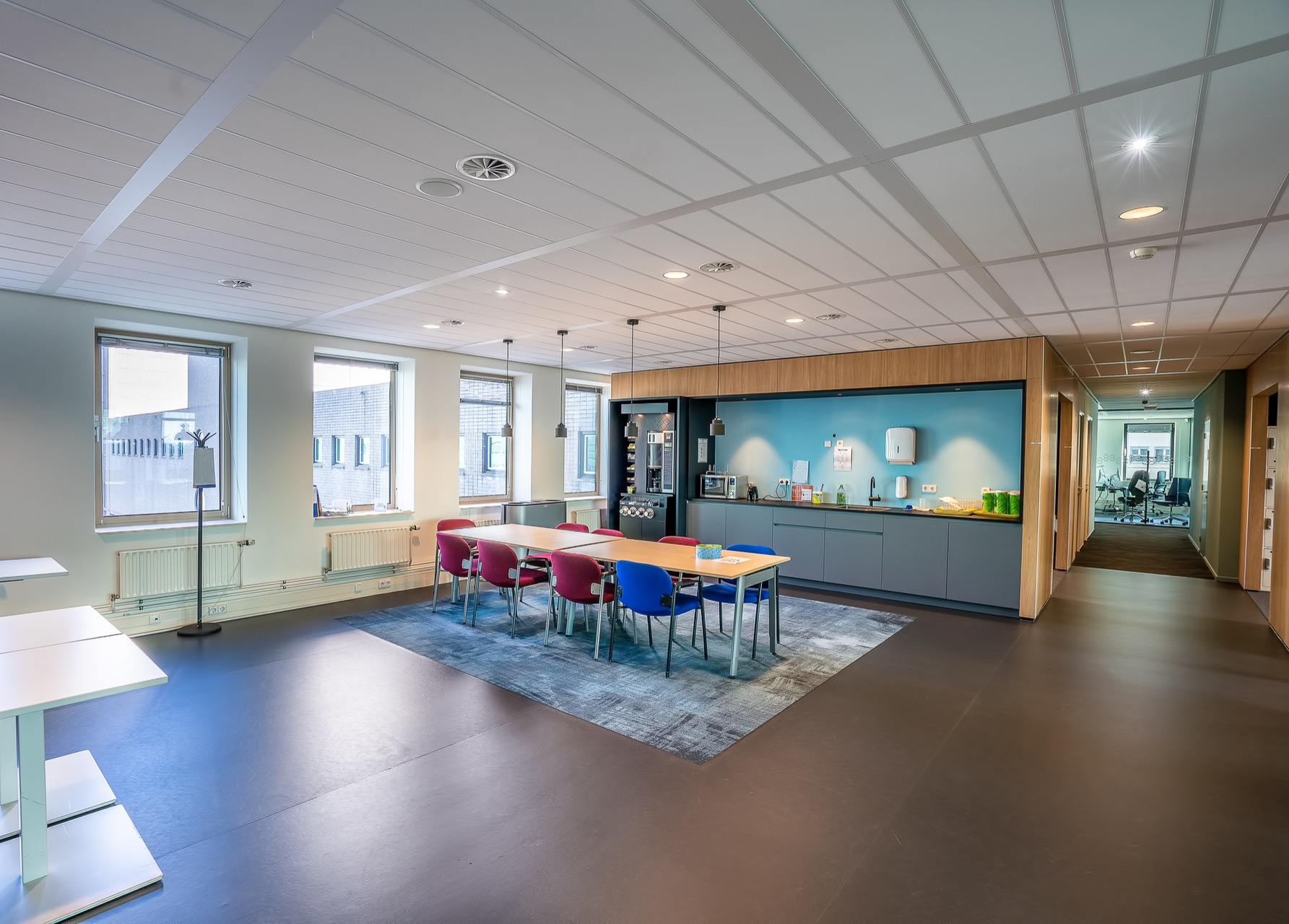6 Ways Modern Office Furniture is Getting Smarter with Tech Integration

Introduction: Where Function Meets Innovation
In today's fast-evolving work culture, office furniture is no longer just about tables and chairs. It's about adaptability, productivity, and smart integration. As technology reshapes how we work, modern office furniture is keeping pace—quietly transforming into intelligent, tech-enabled tools designed to enhance our daily workflow.
From corporate furniture systems to compact home office solutions, smart features are now essential. Whether you're designing a hybrid workspace or revamping an enterprise-level office, embracing this shift is not just a trend—it's a competitive advantage.
Let's dive into the 6 powerful ways office furniture is getting smarter with tech integration, helping workplaces move toward a more efficient and future-ready environment.
1. Built-In Power Outlets and USB Charging Stations
No more crawling under desks in search of power! Modern office desks now come with seamlessly integrated power outlets, USB charging ports, and wireless charging pads. These features are not just convenient—they reduce clutter and enhance safety by minimizing exposed wiring.
Smart corporate furniture solutions often place these charging features in the most accessible zones, whether on desktops, side panels, or even within drawer compartments. For companies aiming to support tech-heavy work environments, this functionality is now a baseline, not a bonus.
2. Cable Management Systems That Actually Work
Tech-savvy office setups are often undone by one thing: messy cables. But not anymore.
New-age office furniture designs now incorporate intelligent cable routing systems—hidden channels, discreet clips, and modular cable trays that streamline connections while preserving aesthetics. These systems help IT teams during installation and upgrades, and they keep workstations clean and distraction-free.
From startups to established enterprises, corporate furniture that prioritizes cable management is essential for a modern, professional workspace.
Pro Tip: Pair these features with under-desk trays and monitor arms to further optimize space.
3. Adjustable Desks with Smart Controls
Say goodbye to static desks and hello to dynamic workstations.
Smart sit-stand desks are on the rise, especially in wellness-focused work cultures. The latest models come equipped with programmable memory presets, reminders to switch positions, and mobile app integration for posture tracking. Some even connect to wearables or corporate health platforms to gamify movement during the workday.
This kind of tech-integrated furniture directly supports employee wellbeing—proven to boost both morale and productivity.
4. IoT-Enabled Meeting Tables
Conference rooms are evolving fast—and so are their tables.
Smart meeting tables now feature built-in touchscreen controls, voice assistants, video conferencing support, and even sensors that track occupancy or usage patterns. These tables are designed to facilitate seamless hybrid meetings, ensuring that remote participants remain as involved as those onsite.
For large organizations, investing in this kind of corporate office furniture isn't just about comfort—it's a strategic move toward digital collaboration.
5. Smart Storage Solutions with Security Tech
Storage has always been a crucial element of any office space, but now it's also becoming smarter.
Lockers and drawers are being equipped with RFID, biometric locks, or mobile app access—ideal for shared workspaces and hot-desking environments. Some modular systems even track usage to help companies optimize storage needs based on real data.
This kind of intelligent office furniture supports both security and space efficiency, especially in high-traffic or multi-user environments.
6. Data-Driven Furniture Usage Analytics
Yes, even furniture is now part of the data game.
Some of the most advanced corporate furniture solutions include embedded sensors that collect anonymized data on how often desks are used, which spaces see the most foot traffic, or when collaborative zones are most in demand.
This empowers office managers to make informed decisions on layout, staffing, cleaning schedules, or even energy management.
Example: A company may discover that 40% of its meeting rooms go unused—triggering a rethink in their real estate strategy.
Why This Matters: Smart Furniture Is Smart Business
The move toward tech-integrated furniture isn't just about flashy features—it's about enhancing functionality, saving time, improving employee satisfaction, and enabling smart decisions at scale.
As the modern office continues to evolve—especially with the rise of hybrid work, remote collaboration, and employee wellbeing—investing in smart, ergonomic, and connected office furniture is no longer a luxury. It's a necessity.
From sleek executive desks to modular conference tables, Maricson is at the forefront of these innovations, delivering premium office furniture solutions that are ready for the future of work.
Conclusion: The Future of Furniture Is Now
Modern office furniture is no longer passive. It's responsive, efficient, and deeply integrated with the way we work and interact with technology.
Whether you're a startup designing a functional, tech-powered HQ or a large corporation rethinking space utilization, embracing smart furniture will set you apart in 2025—and beyond.
So the next time you're evaluating a new desk, chair, or cabinet, ask yourself this:
Is your furniture just furniture—or is it part of your smart workplace ecosystem?
Tags
- Smart Office Furniture
- Tech-Enabled Workspaces
- Corporate Furniture Trends
- Modern Office Design
- Smart Desks and Workstations
- Furniture for Hybrid Offices
- Ergonomic and Connected Workspaces
